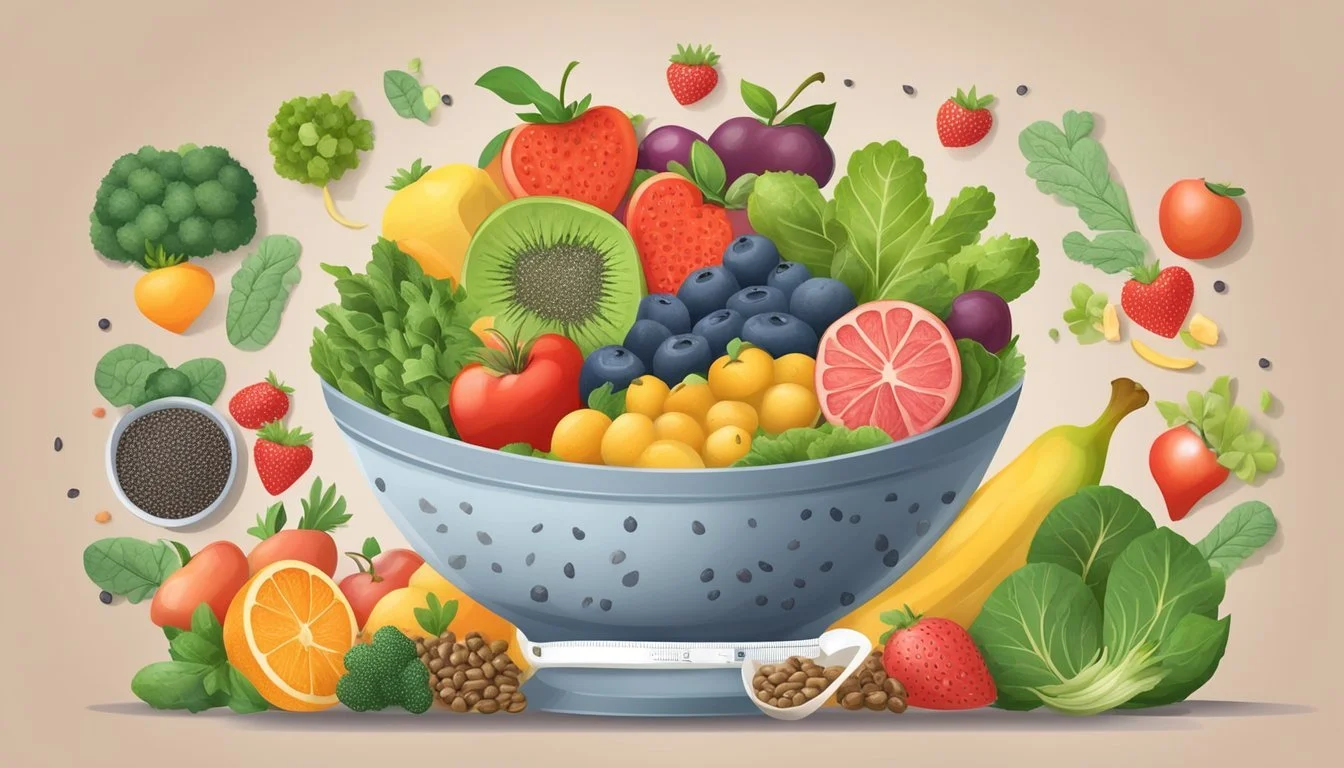Can Diabetics Eat Chia Seeds?
Benefits and Considerations
Chia seeds, known for their rich nutrient profile, have gained attention for their potential benefits for individuals with diabetes. These tiny seeds are a powerhouse of fiber and omega-3 fatty acids, which can help manage blood sugar levels and enhance insulin sensitivity. Incorporating chia seeds into a balanced diet might offer a steady release of energy and help curb overeating, crucial for maintaining weight and controlling diabetes.
For type 2 diabetics, chia seeds can be particularly beneficial. They gradually release glucose into the bloodstream, preventing sharp spikes in blood sugar post-meals. This gradual release promotes better glycemic control, a critical aspect of diabetes management.
Moreover, the fiber in chia seeds also supports digestive health and can keep you feeling full longer, reducing the temptation to snack on unhealthy foods. With their numerous benefits, chia seeds can be a valuable addition to a diabetic-friendly diet.
Understanding Diabetes
Diabetes is a chronic condition characterized by elevated blood sugar levels, often resulting from insulin resistance and issues in glycemic control. It primarily affects the body's ability to process glucose, leading to various health complications if unmanaged.
Type 2 Diabetes and Insulin Resistance
Type 2 diabetes occurs when the body becomes resistant to insulin or when the pancreas doesn't produce enough insulin. This resistance makes it harder for glucose to enter cells, causing a buildup of sugar in the bloodstream.
Factors contributing to insulin resistance include obesity, lack of physical activity, and genetic predisposition. Managing these factors through lifestyle changes and medication can mitigate the impact of insulin resistance.
Understanding the role of insulin in regulating blood sugar is crucial for those managing type 2 diabetes. By improving insulin sensitivity, individuals can better control their glucose levels and reduce the risk of complications.
Blood Sugar Levels and Glycemic Control
Maintaining stable blood sugar levels is essential for individuals with diabetes. Blood sugar, or glucose, is the primary source of energy for the body's cells, and its levels are regulated by insulin. In type 2 diabetes, fluctuations in these levels can lead to serious health issues.
Glycemic control refers to managing these fluctuations to keep blood sugar levels within a target range. This involves monitoring blood sugar regularly, adhering to a diabetes-friendly diet, and taking medications as prescribed.
Foods with a low glycemic index (GI) release glucose slowly, helping maintain more stable blood sugar levels. Incorporating such foods, along with regular physical activity, can significantly improve glycemic control and overall health for individuals with diabetes.
Chia Seeds and Nutrition
Chia seeds are a nutrient-dense food packed with essential components like fiber, protein, vitamins, and omega-3 fatty acids. These tiny seeds offer various health benefits, particularly for individuals managing diabetes.
Nutritional Profile of Chia Seeds
Chia seeds are small, but they contain a powerhouse of nutrients. A single ounce (about 28 grams) provides approximately 138 calories, 11 grams of fiber, 4 grams of protein, and 9 grams of fat, which mainly includes omega-3 fatty acids.
They are rich in minerals like calcium, magnesium, and phosphorus. Additionally, chia seeds provide a good amount of antioxidants, which help protect the body from free radicals. This nutrient profile makes chia seeds an excellent addition to various diets, including those tailored for diabetics.
Role of Fiber in Digestion
Fiber plays a crucial role in managing digestive health and blood sugar levels. Chia seeds are particularly high in soluble fiber, which can help slow the absorption of sugar into the bloodstream. This can prevent spikes in blood sugar levels, making it beneficial for diabetics.
The gel-forming ability of soluble fiber in chia seeds can promote a feeling of fullness, which aids in weight management. This property helps reduce overall calorie intake, contributing to better control of blood glucose levels.
Protein Content and Its Benefits
Protein is essential for numerous bodily functions, including muscle repair and immune response. Chia seeds provide a plant-based source of protein, offering about 4 grams per ounce. This makes them a valuable option for vegetarians and vegans.
Additionally, the combination of protein and fiber helps in stabilizing blood sugar levels by slowing down the digestion process. This dual benefit is particularly advantageous for those managing diabetes, as it helps maintain consistent energy levels throughout the day.
Including chia seeds in one's diet can improve nutritional intake and support overall health goals.
Heart Health and Chia Seeds
Chia seeds provide essential nutrients that significantly influence heart health. They are rich in omega-3 fatty acids, which help manage cholesterol levels, and possess properties that can reduce inflammation and blood pressure.
Omega-3 Fatty Acids and Cholesterol
Chia seeds contain high levels of omega-3 fatty acids, specifically alpha-linolenic acid (ALA).
Omega-3 fatty acids play a crucial role in maintaining heart health by reducing triglycerides and potentially raising HDL (good) cholesterol levels.
HDL cholesterol helps remove other forms of cholesterol, lowering the risk of heart disease.
A standard serving of chia seeds offers a substantial amount of these beneficial fats.
Incorporating chia seeds into daily meals can be a simple way to obtain omega-3s.
For those with dietary restrictions, chia seeds provide a plant-based source of omega-3 fatty acids, beneficial for cardiovascular wellness.
Reducing Inflammation and Blood Pressure
Chia seeds are known for their anti-inflammatory properties, contributing to their positive effects on heart health.
Inflammation can damage blood vessels and lead to heart disease.
Chia seeds also help lower blood pressure.
Hypertension is a significant risk factor for heart disease, and managing it is crucial for maintaining heart health.
Regular consumption of chia seeds can help reduce both systolic and diastolic blood pressure.
This can be particularly beneficial for individuals with high blood pressure or those at risk for hypertension-related complications.
Combined with other heart-healthy habits, adding chia seeds to the diet can support overall cardiovascular health.



